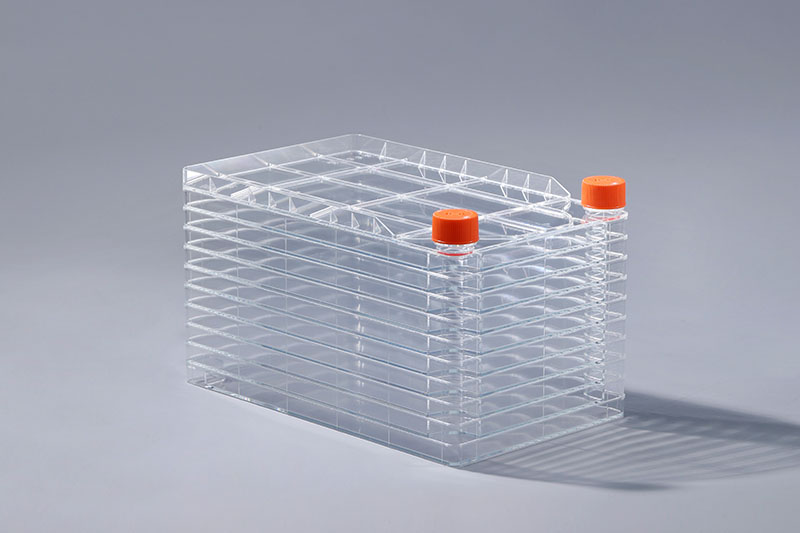The effect of temperature on cells in the cell factory
Cell culture technology is a commonly used technology in the fields of biopharmaceuticals, monoclonal antibodies, and cell therapy. Cell factories are mainly used for large-scale cell culture. The growth of cells is affected by many factors, of which temperature is a very important aspect.
Under normal circumstances, the suitable temperature for in vitro culture of mammalian and avian cells is 37-38 °C. Too high or too low temperature will affect the growth of cells. The ability of cells to tolerate low temperature is stronger than that of heat resistance. At low temperature, the metabolic activity and nuclear division of cells are reduced. When the temperature is not lower than 0 °C, although it affects cell metabolism, it has no harmful effect; when the cells are placed at 25 to 35 °C, the cells can still survive and grow, but the speed is slowed down; Back to 37 ℃ culture cells can continue to grow.
High temperature is not good for cell culture. Cells are cultured at 39-40°C for 1 hour, they can be damaged to a certain extent, but they can still recover, but they cannot tolerate a temperature increase of 2°C for several hours, that is, if they are cultured at 41-42°C for 1 hour, the cell damage is severe. Most of the cells were killed when the temperature was above 43°C. High temperature mainly causes the inactivation of enzymes, the destruction of lipids, the destruction of nuclear division, the production of coagulase, the coagulation of cells, and the denaturation of proteins. Therefore, the cell factory must maintain a suitable temperature and avoid high temperature when culturing cells.
In conclusion, cell growth in a cell factory is affected by multiple factors, and temperature is only one of them. Others include osmotic pressure, sterile environment, gas, and pH.

评论
发表评论